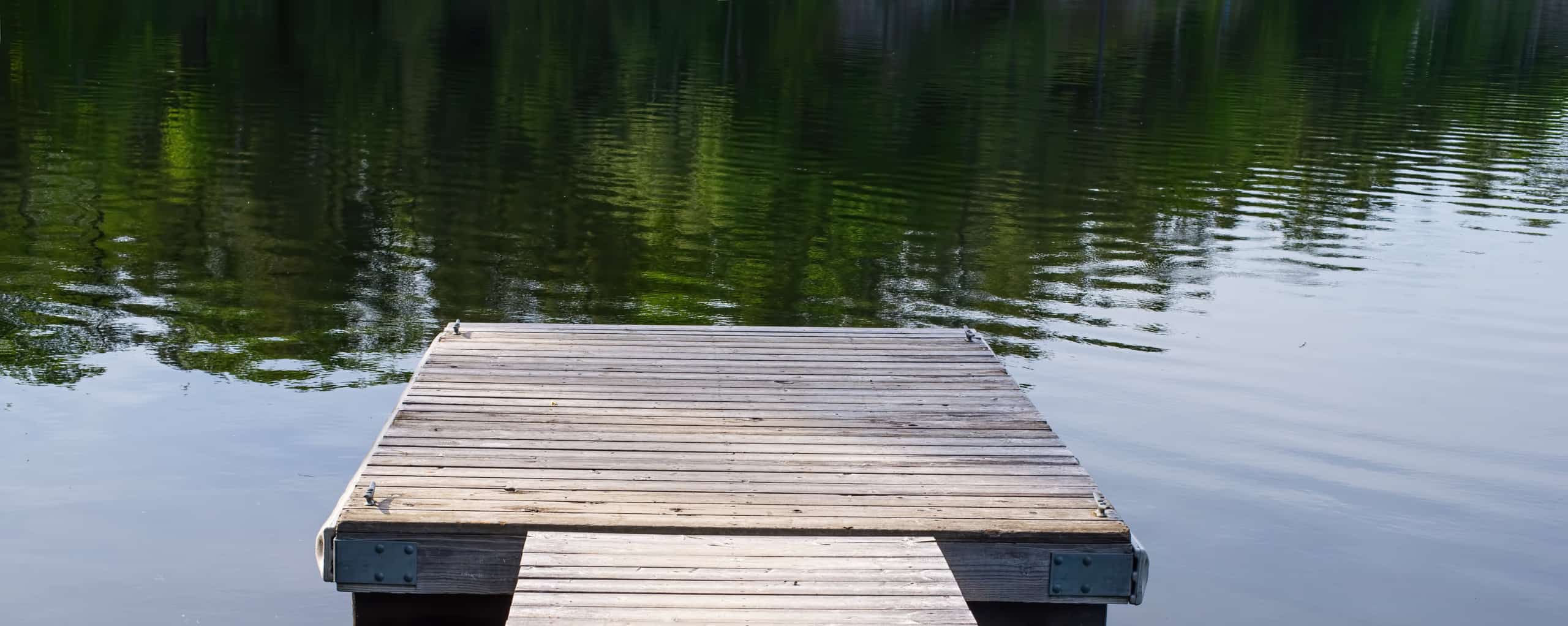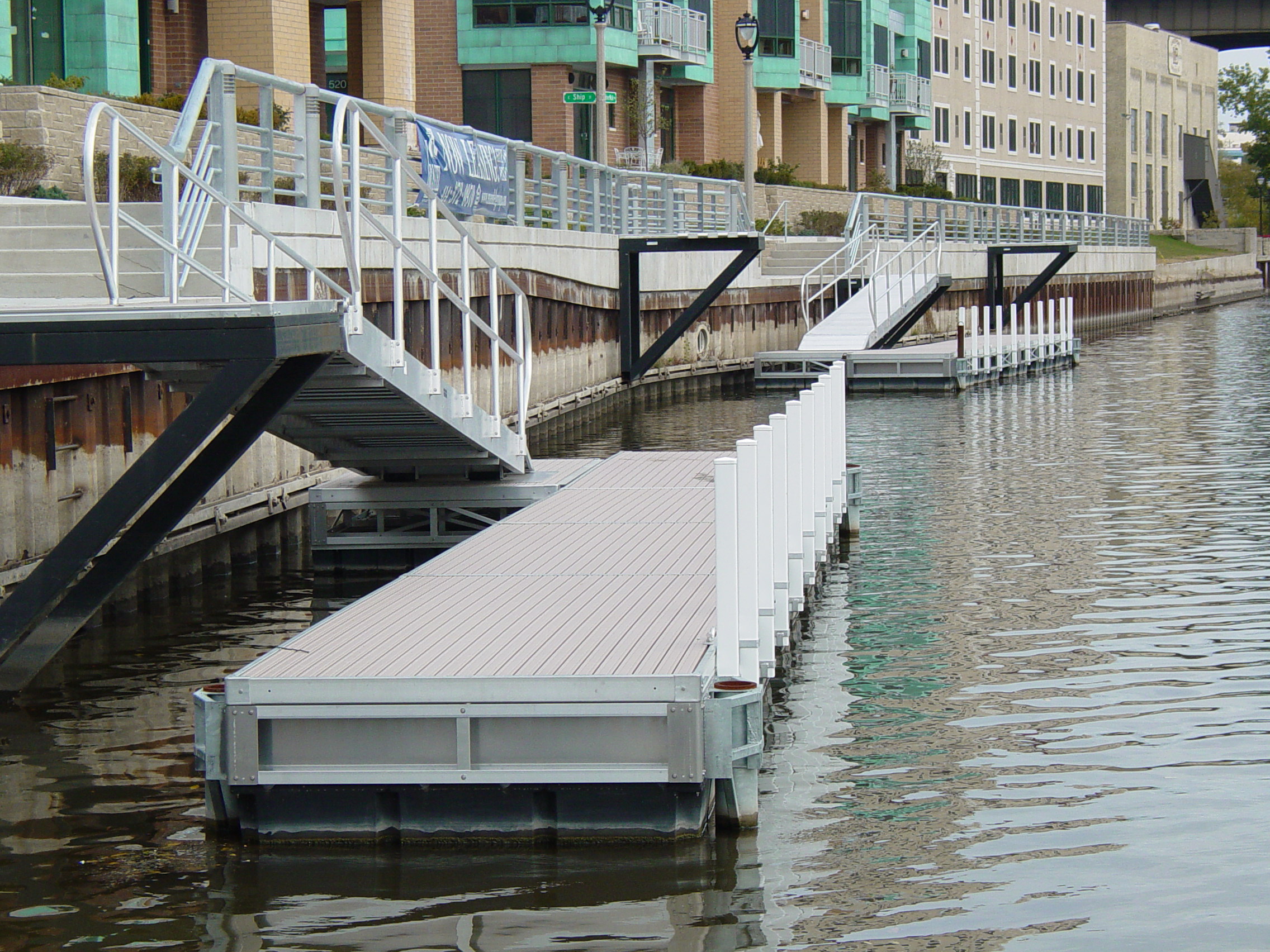Your Overview to Discovering the Best Dock Company for Top Quality and Dependability
Your Overview to Discovering the Best Dock Company for Top Quality and Dependability
Blog Article
Produce the Perfect Docking Service With Floating Docks
Floating docks present a functional service for a selection of maritime demands, adjusting flawlessly to changing water degrees and diverse vessel types. As we check out the crucial aspects that add to the effectiveness of floating docks, numerous vital elements relating to stability and maintenance will arise, elevating questions about just how to optimize your docking experience.

Benefits of Floating Docks
Floating docks deal countless advantages that make them a suitable option for different maritime applications. Unlike dealt with docks, floating docks surge and loss with the trend, making certain consistent accessibility for vessels.
Additionally, floating docks are typically easier and quicker to set up compared to standard fixed structures. Their modular design enables uncomplicated setting up and disassembly, helping with maintenance and moving when needed. This flexibility is particularly valuable for momentary applications or in environments where problems might transform.
Floating docks likewise have a tendency to be more ecologically friendly, as they reduce disturbance to the seabed and surrounding marine ecosystems. Their buoyant nature lowers the danger of damages to aquatic life, promoting a much healthier setting. These docks can be personalized to suit numerous vessel sizes, guaranteeing that they meet details operational requirements.
Eventually, the mix of versatility, ease of installation, and ecological factors to consider makes floating docks a very reliable service for a variety of maritime requirements.
Picking the Right Products
Selecting the appropriate materials for floating docks is vital to make certain durability, stability, and longevity. The selection of products straight impacts the dock's performance in numerous environmental problems, including direct exposure to water, sunshine, and prospective wear from marine traffic.
Typical materials utilized for floating docks consist of light weight aluminum, timber, and high-density polyethylene (HDPE) Light weight aluminum is light-weight, corrosion-resistant, and calls for marginal maintenance, making it an excellent option for longevity. Nevertheless, its initial price can be higher compared to other products.
Wood, while visually appealing and offering a conventional look, can be prone to rot and pest damages otherwise appropriately dealt with. Therefore, utilizing pressure-treated timber or normally sturdy types like cedar or redwood can reduce these concerns.
HDPE is a preferred option due to its resistance to UV rays and chemicals, along with being eco-friendly. floating dock company. It is offered and lightweight in various shades, permitting customization
Eventually, the right product option will certainly depend on certain demands, including spending plan, preferred looks, and environmental considerations. Mindful examination of these variables will certainly cause a effective and durable floating dock option.
Design Factors To Consider for Security
When creating floating docks, ensuring stability is an essential element that can substantially impact their functionality and security. Stability in floating dock layout is influenced by numerous elements, including buoyancy, weight circulation, and the setup of parts.
Weight distribution is essential; uniformly distributing tons throughout the dock avoids tilting and boosts stability. This can be accomplished through strategic positioning of docking equipment, such as cleats and fenders, along with proper spacing of drifts. Additionally, the measurements of the dock need to be attentively prepared. Larger styles can use enhanced stability, specifically in rough water problems, while longer docks might require extra assistances to avoid sagging.
Another vital factor to consider is the ecological influence, consisting of wave action and wind. Incorporating attributes such as sidewalls or skirting can assist mitigate the impacts of ecological forces, keeping stability in unfavorable conditions. Ultimately, a combination of thoughtful layout, product choice, and understanding of ecological aspects will content certainly generate a drifting dock that meets both security and security requirements.
Installment Tips and Techniques

Next, secure the essential authorizations and stick to regional policies, which may dictate installment techniques and ecological considerations. If needed, engage a qualified contractor experienced in floating dock installments. Usage premium materials created for marine atmospheres to enhance toughness and durability.
When placing the dock, align it identical to the shoreline to assist in very easy access. Ensure that the anchoring system is robust, using cinder block or helical supports to maintain the dock versus wind and wave action. It's vital to make up seasonal water level changes, consisting of possible ice motion in cooler climates.
Throughout the setup, double-check the dock's floatation and security before completing the anchoring. Frequently evaluate the setup for any type of indicators of wear or damages. By adhering to these methods and ideas, you can attain a protected, practical, and visually pleasing floating dock setup that meets your demands.
Maintenance and Care Standards
Caring and preserving for floating docks is vital to prolonging their life-span and making sure risk-free use. Regular inspections must be performed to identify any type of indicators of wear, damage, or aquatic development. Try to find cracks, loose installations, or discolored locations on the dock's surface, as these problems can endanger architectural stability.
Cleaning up is important. Use a stress washing machine to remove algae, barnacles, and particles, which can collect in time. For stubborn development, think about eco-friendly cleansing agents that will not damage aquatic life.
Additionally, inspect the mooring lines and supports frequently to ensure they are totally free and safe and secure from deterioration. Change any frayed or harmed lines immediately to maintain stability.
During linked here extreme weather, such as tornados or freezing conditions, take preventive actions. Safeguard the dock with extra mooring lines and, if viable, get rid of any kind of removable components to avoid damage.
Verdict
In verdict, the implementation of floating docks provides a functional and effective docking service ideal for various maritime applications. With proper installation and regular this article upkeep, floating docks can offer reliable and trustworthy docking experiences for a vast array of vessels.
As we discover the important aspects that contribute to the effectiveness of floating docks, several vital aspects concerning security and maintenance will certainly arise, elevating concerns regarding exactly how to optimize your docking experience. Unlike fixed docks, floating docks surge and loss with the trend, making sure constant ease of access for vessels.When creating floating docks, guaranteeing security is an essential aspect that can substantially impact their functionality and safety and security. Security in floating dock design is influenced by numerous elements, consisting of buoyancy, weight distribution, and the arrangement of parts. Ultimately, a combination of thoughtful layout, material selection, and understanding of environmental factors will certainly produce a floating dock that meets both stability and safety demands.
Report this page